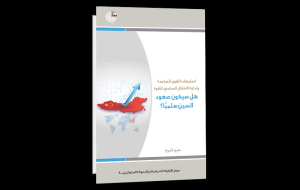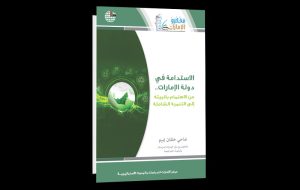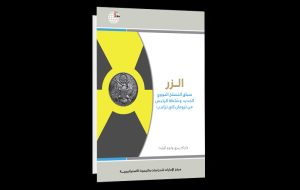Technology is a key driver of change in domestic security operations. It facilitates a range of capabilities and brings new opportunities for the collection and analysis of a broad range of data, intelligence and evidence. It also enables new and improved methods of detection, surveillance, identification and analysis that directly affect internal security. While new technology brings many advantages, it also presents a variety of challenges. One of the main issues is the need to ensure agencies have access to the skills and resources to utilize technology effectively, establishing authority and oversight in line with the pace of operational innovation. The ability to pre-empt any countermeasures to the use of technology in the security sphere is also crucial. Despite the challenges, the UAE is exceptionally well placed to maximize technological advances to improve internal security. Its experience in acquiring advanced systems is complemented by its capacity to leverage cutting-edge technology, in addition to its industry-leading skills and culture of innovation.
Discussions around the best methods for ensuring the internal security of states have dominated international policy debates since the turn of the century. Traditional theories of national security tend to focus on the protection of the state from external forces, whereas contemporary concepts take a much broader view, considering a wider range of individual, transnational and non-state actor related issues. This shift in focus, from traditional concepts of national security to a more nuanced view of homeland security, has seen the emergence of a host of conceptual and analytical tools, which are useful for researchers and practitioners in the field. It has also ignited debates over the utility of traditional national security approaches when dealing with twenty-first century domestic security challenges. In particular, questions have been raised over the tendency in previous practice and research to predict threats based on current conditions and the recent past, overlooking broader trends and transformational events. However, internal security is a subset of both national security and public policy, making it a concept that is highly sensitive to political change and security practices.
This study is divided into four main sections, examining important issues central to the complex relationship between technology and internal security. The first section examines technological drivers of change; the physical and digital technologies that drive significant change in the security domain. The second section considers the opportunities for states seeking to harness technology as an asset in protecting and enhancing internal security. Some of these opportunities include new tools and data techniques available to intelligence and law enforcement agencies. The third section considers the challenges for states, including developing expertise, ensuring the required legal authority is in place, and establishing preventative countermeasures, in order to effectively utilize technological security solutions. The fourth section examines the policy implications of technology’s effect on internal security, including the need for investment to develop the skills and knowledge necessary for states to use technology to their advantage, while denying those advantages to threat actors. Fortunately, in utilizing technological solutions, the UAE is well positioned as a security actor, benefiting from recent experience implementing high-tech solutions to policy challenges. It also has a demonstratable willingness to invest in the future and a culture of innovation that can be leveraged to optimize the connection between technology and internal security.
About the Author:
Dr. John Hardy is Assistant Professor of Homeland Security at Rabdan University. He was previously Director of Security Studies at Macquarie University in Sydney and a Research Fellow at the Australian National Security College (NSC). He has extensive experience in delivering professional training for governments around the world, specializing in national security, intelligence, counterterrorism and law enforcement. His current research interests focus on national security policy issues, such as the application of narrative analysis to extremist propaganda, mechanisms of coercive power in unequal political contests, and the use of emerging technologies to enhance security intelligence operations.
Publisher: Emirates Center for Strategic Studies and Research
Date of Publication: 2022













